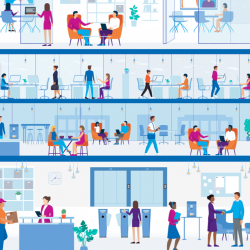October 12, 2022
People going back to basics in terms of what they want from work
 A new poll claims that growing economic uncertainty has forced employees to reprioritise what they want from their employers. People are increasingly interested in basics such as job security, a safe and comfortable workplace, salary and benefits, and a better workplace culture. The BCW Expectations at Work study [registration], which surveyed more than 13,000 people across five industries and 15 countries around the world, claims that one in two workers say they value the basics of job security (52 percent), workplace safety and comfort (50 percent), salary and benefits (49 percent) and workplace culture (48 percent) most out of 62 components across five dimensions of the employee experience. (more…)
A new poll claims that growing economic uncertainty has forced employees to reprioritise what they want from their employers. People are increasingly interested in basics such as job security, a safe and comfortable workplace, salary and benefits, and a better workplace culture. The BCW Expectations at Work study [registration], which surveyed more than 13,000 people across five industries and 15 countries around the world, claims that one in two workers say they value the basics of job security (52 percent), workplace safety and comfort (50 percent), salary and benefits (49 percent) and workplace culture (48 percent) most out of 62 components across five dimensions of the employee experience. (more…)



































October 13, 2022
The success of hybrid working hinges on creating a great workplace experience
by Lee Rubin • Comment, Flexible working, Wellbeing, Workplace